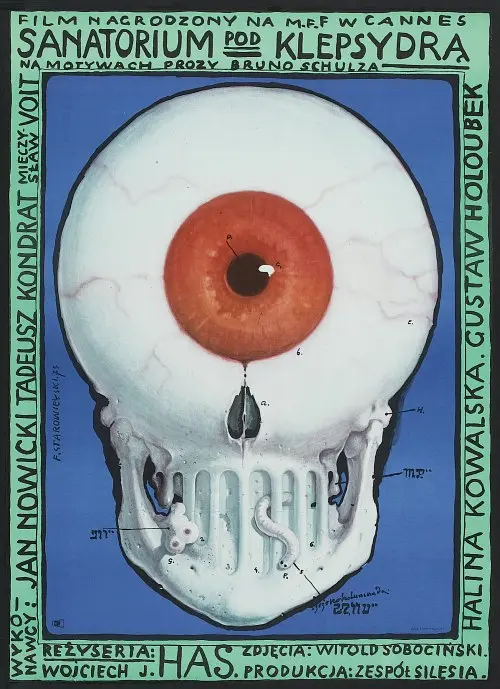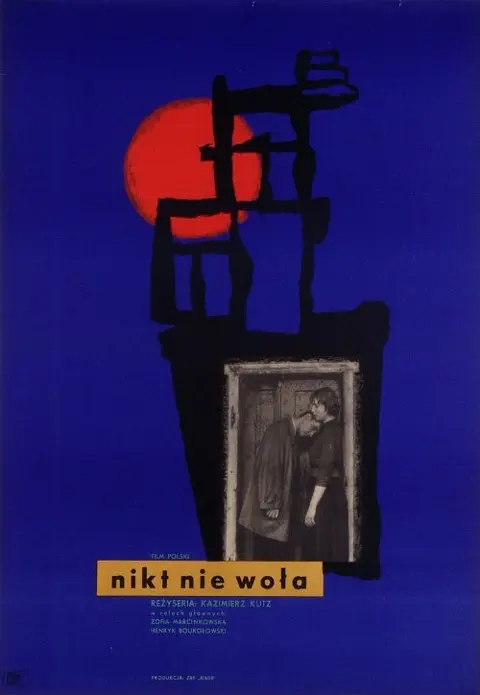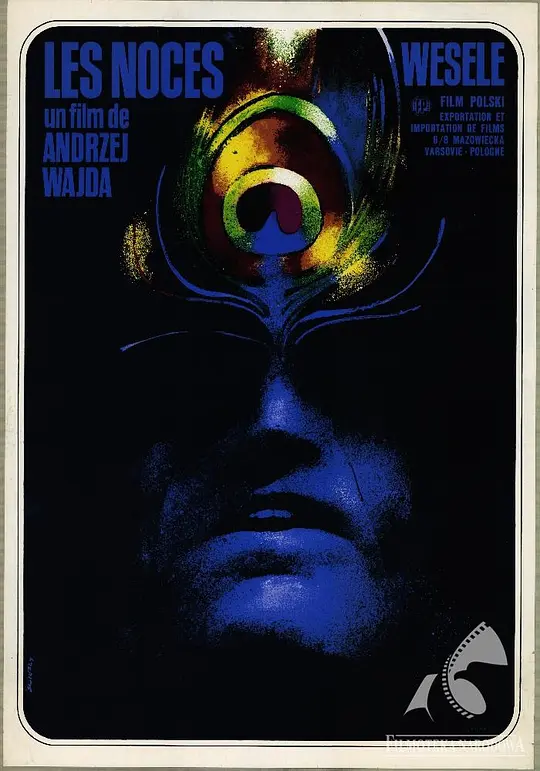搜索词:Henryk Boukolowski
砂制时镜下的疗养院
扬·诺维茨基,塔德乌什·孔德拉特,伊雷娜·奥斯卡,哈利娜·科瓦尔斯卡,格斯塔·霍洛贝克,Mieczyslaw Voit,博泽娜·阿达梅克,卢德维克·伯努瓦,Henryk Boukolowski,Seweryn Dalecki,Julian Jabczynski,Jerzy Przybylski,维克托·萨德茨基,Janina Sokolowska,Wojciech Standello,塔德乌斯·施密特,Szymon Szurmiej,Jan Szurmiej,Michal Szwejlich,Pawel
哈斯的彩色电影,《萨拉戈萨手稿》的姊妹篇,个人觉得他的风格更适合彩色,此片要比《萨》更为出色。这是一次内心的历险。故事背景设在二战前期,一位年轻人乘坐一辆奇怪的列车去看望住在疗养院中垂死的父亲。但这个即将拆毁的地方唤起了他许多过去的回忆。他被过去的士兵、殖民地的雇佣兵、昔日生活中的女孩,以及他的父母所包围... 获奖:波兰电影奖最佳产品设计奖 戛纳电影节评审团奖并提名金棕榈
无人呼叫
Zofia Marcinkowska,Henryk Boukolowski
50年代-60年代初波兰电影学院派的经典作品之一,堪称与同时代意大利导演安东尼奥尼的《奇遇》相比,改编自Józef Hen在社会主义波兰时期被禁的小说。 In 1960 his second film NIKT NIE WOLA / NOBODY'S CALLING, based on a Jozef Hen novel that was never published in Poland, described the fate of Poles on the Eastern Front. Kutz used the film to explore new formal solutions, collaborating closely with cinematographer Jerzy Wojcik to reveal the psychological landscape of a pair of lovers who are strongly affected by wartime events. The camera recorded the couple's inner experiences, contrasting their muted intimacy against the surrounding scenery of a ruined town. The film did not win over critics at the time of its release. It was not until later that critics recognized Kutz's effort to experiment with aesthetics in a manner akin to that pursued by filmmakers of the new wave. NOBODY'S CALLING came to be compared with Michelangelo Antonioni's THE ADVENTURE, which was produced around the same time.
婚礼
马雷克·瓦尔切夫斯基,伊萨贝拉·奥斯则瓦斯卡,埃娃·津泰克,达尼尔·奥勒布里斯基,埃米莉娅·克拉科夫斯卡,米奇斯瓦夫·斯托尔,卡齐米日·奥帕林斯基,Henryk Borowski,Marek Perepeczko,Janusz Bukowski,安杰伊·瓦皮茨基,沃捷希奇·帕斯佐尼亚克,Andrzej Szczepkowski,Mieczyslaw Czechowicz,芭芭拉·弗热辛斯卡
Set at the turn of the century, the story concerns a Polish poet living in Cracow who has decided to marry a peasant girl. The wedding is attended by a heterogenous group of people from all strata of Polish society, who dance, get drunk and lament Poland's 100-year-long division of Poland under Russia, Prussia, and Austria. The bridegroom, a painter friend, and a journalist each in turn is confronted with spectres of Polish past. In the end a call to arms is called but turns out to be a hoax.





